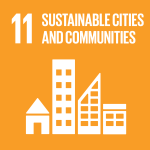
Photo: At COP28, the Green Climate Fund, UN Development Programme and World Health Organisation announced an ambitious new initiative that will ramp up support for developing countries to mitigate and respond to the impacts of climate change on health in 14 countries in Africa, Asia and Southeastern Europe.
The Green Climate Fund (GCF), the United Nations Development Programme (UNDP) and the World Health Organization (WHO) launched an ambitious new initiative that will ramp up support for developing countries to mitigate and respond to the impacts of climate change on health in 14 countries in Africa, Asia and Southeastern Europe.
The latest IPCC report highlights that climate change is a serious threat to human well-being and planetary health, and developing countries with weak health infrastructure are particularly vulnerable. Yet, countries have identified insufficient finance as a barrier to implementing their national health and climate change plans. The climate health nexus has been underfunded from available climate related funding pots, with only 2 per cent of adaptation funding and 0.5 per cent of multilateral climate funding allocated to projects that protect or improve human health. Additionally, there is fragmentation of efforts towards financing this nexus.
To address this gap, GCF, UNDP and WHO have come together in a crosscutting partnership and committed funding to support the development of an ambitious global climate and health investment programme initially seeking to deploy USD 122 million in financing. With a USD 1.5 million grant from GCF’s Project Preparation Facility and matching funding of USD 1.56 million from UNDP and WHO, this programme will establish the Climate and Health Co-Investment Facility.
This unique financing mechanism will leverage public and private capital to promote climate resilient, sustainable, and low-carbon health systems and assist countries to implement their health commitments made at COP26 and through the WHO's Alliance for Transformative Action on Climate and Health (ATACH), an alliance using the collective power of WHO Member States and other stakeholders to realise the COP26 ambition of building climate resilient and sustainable health systems.
“Climate and health are intertwined challenges, and we must respond accordingly. Climate finance has an important role in preparing health systems to be better equipped to respond to climate impacts. The Climate and Health Co-Investment Facility is a powerful new instrument for healthier, more resilient communities in frontline nations,” said Mafalda Duarte, GCF Executive Director.
The announcement was made at the World Climate Action Summit’s Leaders’ Event on Health, which spotlights the progress made on climate and health and aims to galvanize public and private sector momentum for climate and health at COP28.
"The climate crisis is a clear and present danger to public health. With the clock ticking, we must urgently build climate-resilient, sustainable, and low-carbon health systems — this initiative, forged in collaboration between the Green Climate Fund, UN Development Programme and the World Health Organization, will convene public and private sector partners and leverage the resources at scale to do just that, and in some the world’s most vulnerable countries," said Srilata Kammila, UNDP Head of Climate Change Adaptation.
Nataly Olofinskaya, Regional Technical Specialist for Adaptation, UNDP nataly.olofinskaya@undp.org



